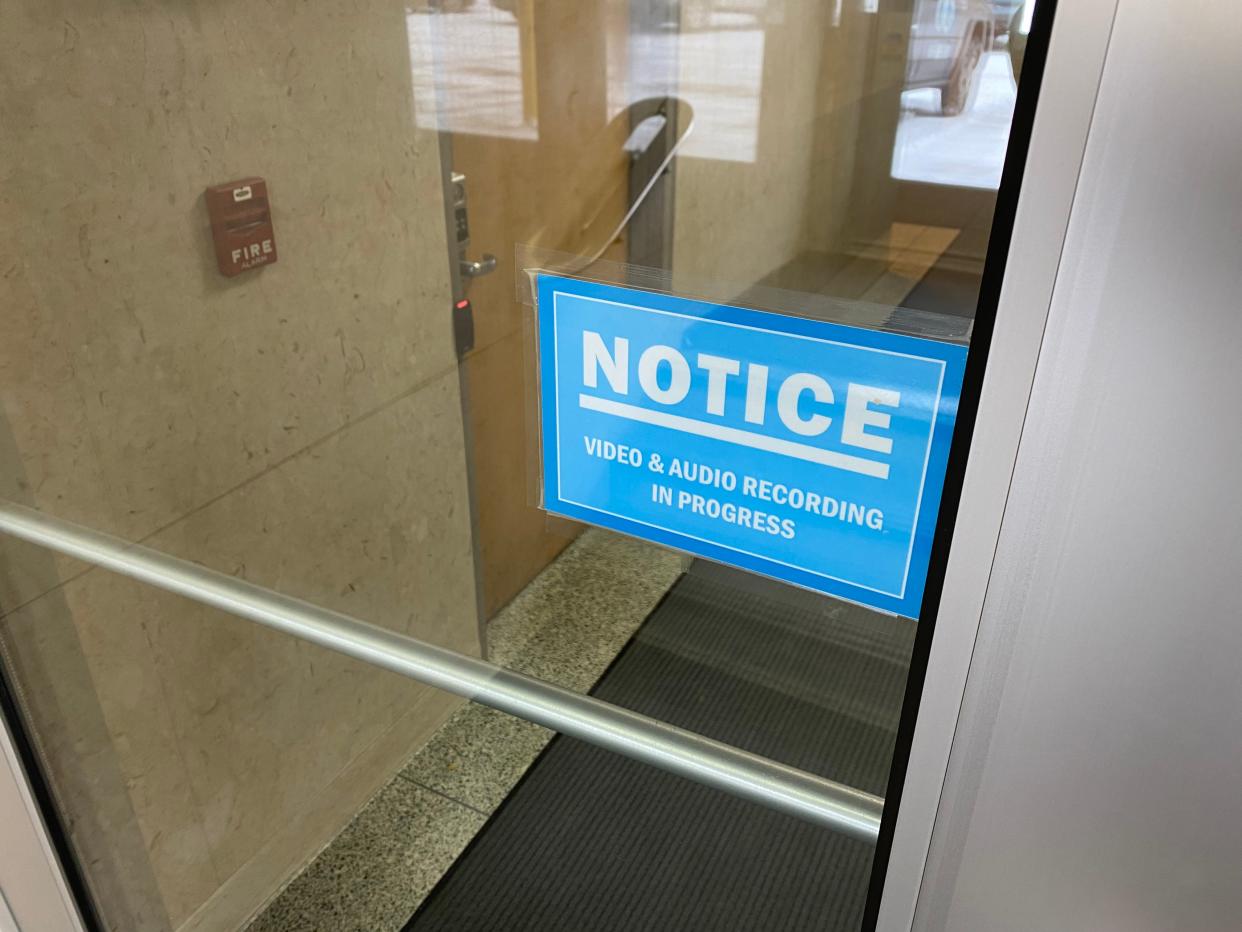Trial set for May in Green Bay City Hall eavesdropping case

GREEN BAY - A three-day trial has been set for May 20 in the case of the city of Green Bay making audio recordings inside City Hall.
Brown County Circuit Court Judge Marc Hammer cautioned attorneys that scheduling delays could push a trial into mid-campaign and into election season. "This is a scheduling issue; not a political issue," said Brown County Circuit Court Judge Marc Hammer. "It inures to your benefit to schedule this case now."
The issue arose at a City Council meeting in February, when City Council member Chris Wery said "citizens and employees are being spied on at City Hall." At issue was the fact the city was recording audio in addition to video in some areas of the first and second floors. The city agreed to install signs.
Meanwhile, a lawsuit was filed for a temporary restraining order requiring the city to disable audio-recording devices at City Hall, prohibit their reinstallation and destroy all audio recordings.
The plaintiffs — the Wisconsin State Senate, state Sen. Andre Jacque, R-De Pere, former Green Bay City Council member and Brown County Board member Anthony Theisen and "Jane Doe" — also seek fines. Jane Doe was later identified as Janet Angus, a Green Bay lawyer.
On March 2, Hammer ordered the city to stop making audio recordings inside the building until the lawsuit could be resolved but he didn't order their destruction.
On March 7, the City Council voted to remove the audio recording equipment.
The case boils down to the city standing by its argument that being able to record audio conversations on the first two floors of City Hall to protect people from being crime victims and being injured in a slip-fall incident. The city maintains it notified employees before installing the audio recording equipment.
Plaintiffs in the suit say some workers, and few members of the public, were aware that the city could make recordings. They also say the city could have done better at making sure the existence of the equipment was widely known. They argue that the city was "spying on" people, violating their Fourth Amendment rights.
Email Doug Schneider at DSchneid@Gannett.com, call him at (920) 559-0809 follow him on X (formerly Twitter) at @PGDougSchneider.
This article originally appeared on Green Bay Press-Gazette: Trial set for May in Green Bay City Hall eavesdropping case

